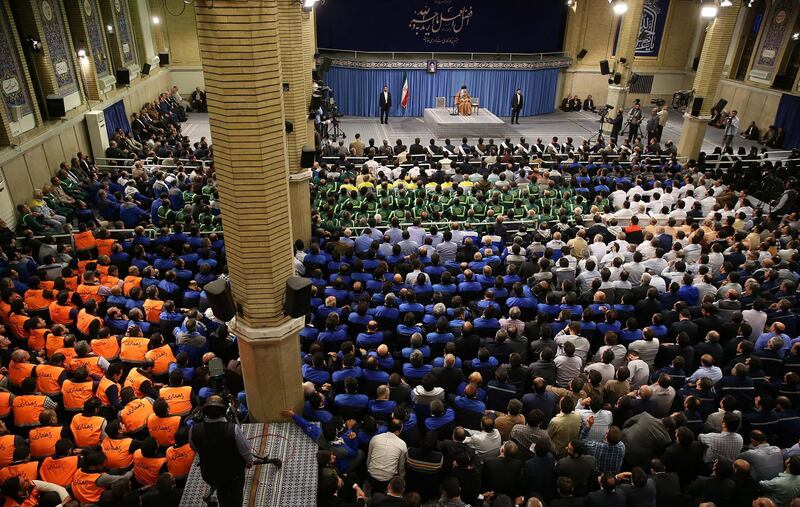US sanctions against Iran have denied its government more than $10 billion (Dh36.7bn) in oil revenue since President Donald Trump first announced the move last May.
Brian Hook, US Special Representative for Iran and Senior Policy Advisor to the Secretary of State, made the comment during a call with reporters just days after Washington said it would end all exemptions to the sanctions. The United States demanded importers halt purchases from Tehran from May 1 or face punitive action.
"Before sanctions... Iran generated as much as $50bn annually in oil revenue. We estimate that our sanctions have already denied the regime more than $10bn since May [2018]," Mr Hook said.
The US re-imposed sanctions against Iran's oil exports last November after Mr Trump unilaterally pulled out of a 2015 accord between Iran and six world powers to curb Tehran's nuclear programme last spring. But Washington initially allowed the eight biggest buyers of Iranian oil limited imports for another six months.
The eight were China, India, South Korea, Japan and Turkey. Taiwan, Greece and Italy stopped imports despite being given waivers.
China is the biggest buyer, and Beijing has criticised the move to re-impose sanctions.
US officials speaking during Thursday's call that they were confident China would be able to find alternative supplies to Iran.
Before the reimposition of sanctions, Iran was one of the top five producers among the Organisation of the Petroleum Exporting Countries (Opec) at close to four million barrels per day. Iran's oil exports have now dropped to about a million barrels per day.
The tightening of US sanctions announced this week pushed crude oil prices to their highest levels this year.
South Korea is heavily reliant on Iran supplies as its petrochemical facilities are designed to use Iranian condensate, a super-light form of crude oil.
The US officials said the government was working closely with South Korea to ensure supply for its petrochemical facilities.







